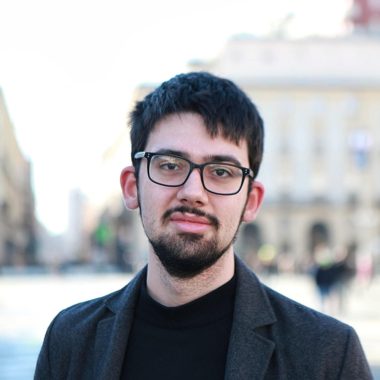Three years ago the whole world was hit hard by the Covid-19. I still remember, like most of us, being locked at home, doing online learning, preparing I don’t know how much bread and pizza (sounds Italian, eh?) and seeing the outside from the little apartment where I lived with my family.
In that period, April 2020, I started writing for the Star-Revue. My first article ever was about being stuck in the country that was suffering the most worldwide, Italy. I still remember the headline in the front page: “The real worry is not the virus, but its potential legacy upon our freedom and our society.”
I thought about that a lot before writing this article, as for two days, after receiving the news of a positive COVID contact, I’ve been waiting for the mandatory 48 hours to take a test.
Having Covid in 2023 is striking. Right now I’m in France, and soon after knowing I was exposed, I checked the French government rules in case of a positive test or a close contact.
The rules today do not stipulate quarantine, registration or even social distancing, which is relegated to a recommendation rather than a rule.
I felt disoriented, having no rules, being back to individual freedom, being even able to harm people with the transmission of a virus that a few years before had killed thousands of people.
Of course, we’re now vaccinated, herd immunity has been achieved and potentially, for most of us, Covid today is not much different than a flu. The problems seem to be different from that little invisible being that has haunted our lives for two years.
We sacrificed
But in a way this pestilence has also carried good stuff, a kind of unanticipated consequence of the pandemic. I remember the national flags and the anthem sang through the streets, the drawn rainbows on the windows with the writing “everything will be okay”. We were a community back then, we cared for the health of our loved-ones. My generation (I’m 20) sacrificed its freedom for our grandparents: It was the highest solidarity I’ve ever seen since I was born, a memory I will preserve forever, something I will tell to my possible children.
Now things have changed, we are back to our pre-Covid society. The nurse I interviewed back in April 2020 still works in the hospital, the high school teacher teaches in the same school, only the girlfriend I then mentioned seems to have changed something insince that article. I’ve started doubting what I’ve written, “the potential legacy”, because I don’t see it. Maybe it’s too early. It could be that inside of us we’re still so traumatized that we cannot see the elephant in our room. But I’m still pretty sure it will come.
Eventually, I tested negative, and Covid passed away with my only regret the 25 fewer euros in my wallet for the swab I hoped in a way might have given a different result. Just to stay a little bit with myself, to experience that freedom to stop, that during those days was a duty, but right now could be maybe a gift for many, or for me. But no, we’ve no more the right to do so, life goes on and this article right now may seems just the delirium of a patient affected by Stockholm syndrome.
Author
-

Dario Pio Muccilli is the Star-Revue’s Italian correspondent, based in Turin. Email him at muccillidariopio@gmail.com
View all posts
Dario Pio Muccilli is the Star-Revue’s Italian correspondent, based in Turin. Email him at muccillidariopio@gmail.com










